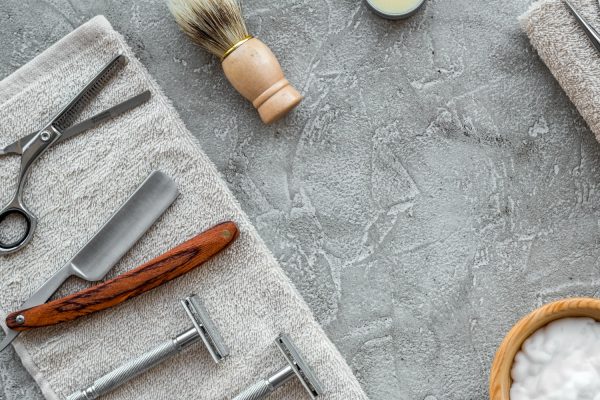Living with friends, family or your partner usually means sharing facilities, and that can mean having lots of different lotions and potions around the house as everyone has their favourite fragrance! You might decide that sharing toiletries is a good option, both for reducing clutter and saving a few pounds here and there. But is sharing a false economy, and is it even hygienic?
What toiletries are OK to share?
There are some toiletries that it’s perfectly fine to share if you want to. Anything that you squirt out of a container onto your skin, like liquid handwash, is unlikely to be contaminated with somebody else’s skin or other cells. Toiletries it’s hygienic to share include shampoo, conditioner, shower gel, hair products, toothpaste and aerosol deodorant.
There are occasions where, although hygienic, sharing toiletries is off the table. For example, if somebody you live with has a skin condition or allergy that means they have to use a particular brand or product, it’d be mean to use their medicated, and often pricier toiletries! And of course, there’s no accounting for personal taste. When it’s a toss-up between the zingy lemon scented shower gel and the one that smells like Cherry Bakewells, there may well be no compromise. But, if you can agree, then it’s absolutely fine to share if you want to!
What shouldn’t I share?
For as many items as it’s OK to share with your nearest and dearest, it seems there are two you should be keeping to yourself. Some are a bit disgusting but not fundamentally dangerous, and others could give you serious health problems!
At the “gross” but not dangerous end of the scale are things like lotions and moisturisers that come in jars. It’s logical, really – the more people are dipping their hands into something the more likely it is to get contaminated with germs. A step up from this is roll on or stick deodorant. Unlike aerosol antiperspirants, after you use a roll on you could leave hair and skin cells on it, and while someone else getting your hair and skin on them isn’t life-threatening, it definitely raises some hygiene questions.
Bar soap, makeup and towels are also all a big no-no when it comes to sharing. These products are a breeding ground for bacteria, mostly because, in the case of soap and towels, they spend most of their time damp. Drying your hands on someone else’s towel might be OK from time to time, but sharing someone else’s bath towel routinely is probably not wise!
Perhaps the most crucial things to keep to yourself, though, are items where there’s a risk of transferring your blood to someone else, or theirs to you. Razors, tweezers, tooth brushes and nail clippers all come with this risk and you could pick up anything from a minor bacterial infection to HIV if the other person is infected. Nasty!
Hygienic or not, is sharing toiletries a false economy?
Somebody wise once pointed out that if you’re sharing a product with someone, it’ll run out twice as fast, and you’ll have to replace it twice as often. Thus, the saving you think you’re getting from sharing is not a saving at all, and your investment in it over time will be the same. And by our reckoning, if a product won’t run out, then it comes with a higher risk of infection or worse. Verdict? What you can share isn’t economical to share, and what you shouldn’t might hurt you if you did!
Best to keep your toiletries to yourself, we say… Do you agree, or are you big on sharing? Let us know in the comments!




















